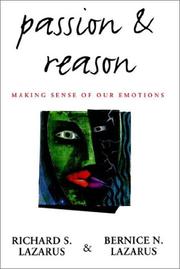| Listing 1 - 10 of 15 | << page >> |
Sort by
|
Multi
ISBN: 9782931051221 Year: 2019 Publisher: Liège CIRIEC international
Abstract | Keywords | Export | Availability | Bookmark
 Loading...
Loading...Choose an application
- Reference Manager
- EndNote
- RefWorks (Direct export to RefWorks)
Abstract: Shared services cooperatives are member associations formed to meet a variety of institutional needs for economies and efficiencies of scale through collaboration in areas such as purchasing, marketing, processing and distribution (Crooks, Spatz & Warman, 1997). Our study examines cases in business, finance, health, and public sectors of the US economy. This research develops a theoretical understanding of how this form compares to related types of cooperatives and other forms of collaboration. It also empirically documents how shared services are used. The research looks at the experience of these shared-services cooperatives: what are the benefits to members; how they are structured and their impact on the local economy. Key stakeholder interviews were conducted with senior staff of cooperatives in financial services, watershed authorities and watershed management, as well as in the health sector, the business sector, and public libraries. The study develops a comparative case analysis utilizing a social ecology analytic framework. The benefits of this form of shared services cooperative are: access to influence networks; enterprise integration and interoperability; sharing of training resources; greater financial resources and professionalism (risk and financial safety); growth opportunities; and increased retention. Key to success is the development of trust and services that are well and affordably administered.
Shared services (Management) --- Reliability --- Employee empowerment --- Business networks --- Sustainability --- Adaptability (Psychology) --- Cooperation
Book

ISBN: 9782807308497 Year: 2017 Volume: *63 Publisher: Louvain-la-Neuve De Boeck Supérieur
Abstract | Keywords | Export | Availability | Bookmark
 Loading...
Loading...Choose an application
- Reference Manager
- EndNote
- RefWorks (Direct export to RefWorks)
Le manuel donne aux praticiens des explications suivies de conseils concernant la thérapie comportementale ACT. Sont étudiés les 6 processus thérapeutiques centraux et comment les appliquer pour un grand nombre de problèmes cliniques. L'objectif est que le patient accepte ce qui est hors de son contrôle personnel et qu'il s'engage à entreprendre des actions enrichissantes malgré les symptômes.
Book
ISSN: 17809517 ISBN: 9782807307322 2807307329 Year: 2017 Volume: *64 Publisher: Louvain-la-Neuve: De Boeck supérieur,
Abstract | Keywords | Export | Availability | Bookmark
 Loading...
Loading...Choose an application
- Reference Manager
- EndNote
- RefWorks (Direct export to RefWorks)
"La thérapie d'acceptation et d'engagement ou ACT a, depuis son émergence, fait ses preuves en associant efficacité et durabilité dans les résultats. En encourageant chacun à aligner pensées et actions sur ses valeurs, ce mode de thérapie permet aux patients coincés dans des modes de pensée ou comportements contre-productifs d'évoluer positivement.L'ACT repose cependant sur un modèle qui n'est pas toujours facile à mettre en pratique. La matrice ACT permet d'activer les six processus sur lesquels s'appuie l'ACT au moyen d'un schéma efficient et transparent, tant pour les thérapeutes que pour les patients. En plus d'un protocole détaillé pour utiliser la matrice ACT, les auteurs illustrent son efficacité pour travailler avec les enfants, les ados et leurs parents, en thérapie de couple ou encore en coaching. Enfin, ils montrent aussi comment l'intégrer à d'autres approches psychothérapeutiques. Complet et approfondi, ce guide permettra aux professionnels d'améliorer leur pratique de l'ACT et d'aider leurs patients à vivre pleinement."--Page 4 de la couverture.
Thérapie d'acceptation et d'engagement --- Acceptance and commitment therapy --- Adaptation (psychologie) --- Maladies mentales --- Aspect psychologique --- Adaptability (Psychology) --- Mental illness --- Adaptation (Psychologie) --- Thérapie d'acceptation et d'engagement --- Clinical psychology --- Handbooks, manuals, etc. --- Thérapie d'acceptation et d'engagement.
Book
ISSN: 17809517 ISBN: 9782804163808 2804163806 Year: 2015 Publisher: Louvain-la-Neuve: De Boeck,
Abstract | Keywords | Export | Availability | Bookmark
 Loading...
Loading...Choose an application
- Reference Manager
- EndNote
- RefWorks (Direct export to RefWorks)
La Thérapie d'Acceptation et d'Engagement (ACT) est issue de la « troisième vague » des thérapies comportementales et cognitives, aujourd'hui en plein essor partout dans le monde. Basée sur des recherches novatrices en psychologie expérimentale et clinique, l'ACT suggère que lutter contre sa propre souffrance a souvent comme effet paradoxal d'en augmenter l'intensité et l'importance. Ce combat nous empêche également de mener les actions qui conduiraient à une vie riche de sens.L'ACT promeut l'acceptation des pensées et ressentis difficiles, le contact avec ses valeurs de vie et les actions engagées au service de ces valeurs. L'addition des outils de la Thérapie basée sur l'Analyse Fonctionnelle (FAP) facilite la création de relations thérapeutiques profondes et authentiques. L'ACT a prouvé son efficacité dans la prise en charge de différents troubles mentaux, du stress professionnel ainsi que dans l'optimisation de la performance sportive.Cet ouvrage novateur présente l'ACT et la FAP à travers le modèle simple et intuitif de la matrice ACT. Pratique, il contient plus de 75 exercices et métaphores, de nombreux exemples et dialogues cliniques tirés de la pratique des auteurs, ainsi que des éclairages sur les recherches les plus récentes. Il met à la disposition de cliniciens venus d'horizons différents des outils thérapeutiques pratiques faciles à comprendre et à mettre en action.
Acceptance and commitment therapy --- Therapie acceptatie en commitment --- Thérapie d'acceptation et d'engagement --- Adaptability (Psychology) --- Adaptation (Psychologie) --- Thérapie d'acceptation et d'engagement --- Handbooks, manuals, etc. --- Thérapie d'acceptation et d'engagement. --- Acceptance and commitment therapy.
Book
ISBN: 9780691124131 Year: 2011 Publisher: Princeton ; Oxford Princeton University Press
Abstract | Keywords | Export | Availability | Bookmark
 Loading...
Loading...Choose an application
- Reference Manager
- EndNote
- RefWorks (Direct export to RefWorks)
Adjustment (Psychology) --- Civilization, Western --- Disasters --- Terror --- Uncertainty --- Calamities --- Catastrophes --- Curiosities and wonders --- Accidents --- Hazardous geographic environments --- Civilization, Occidental --- Occidental civilization --- Western civilization --- Accommodation (Psychology) --- Adaptation (Psychology) --- Adapting behavior --- Adaptive behavior --- Coping behavior --- Maladjustment (Psychology) --- Personality --- Psychology --- Adaptability (Psychology) --- Reasoning --- Fear --- Terrorism --- History --- Social aspects&delete& --- Social aspects
Book
ISBN: 273811220X 9782738112200 Year: 2003 Publisher: Paris: Odile Jacob,
Abstract | Keywords | Export | Availability | Bookmark
 Loading...
Loading...Choose an application
- Reference Manager
- EndNote
- RefWorks (Direct export to RefWorks)
Resilience (Personality trait) --- Adaptability (Psychology) --- Psychic trauma --- Résilience (Trait de personnalité) --- Adaptation (Psychologie) --- Traumatisme psychique --- #gsdbP --- Ontwikkelingspsychologie --- emotionele ontwikkeling --- Resilience (Personality trait). --- emotionele ontwikkeling. --- Résilience (Trait de personnalité) --- Psychoanalysis --- Human resilience --- Resiliency (Personality trait) --- Personality --- Emotionele ontwikkeling. --- 410 --- psychanalyse --- psychologie --- Resilience (Personality trait) - Case studies. --- Psychology

ISBN: 0195087577 Year: 1994 Publisher: New York Oxford Oxford University Press
Abstract | Keywords | Export | Availability | Bookmark
 Loading...
Loading...Choose an application
- Reference Manager
- EndNote
- RefWorks (Direct export to RefWorks)
Aanpassing (Psychologie) --- Accommodation (Psychology) --- Adaptation (Psychology) --- Adapting behavior --- Adaptive behavior --- Adjustment (Psychology) --- Affect (Psychologie) --- Affect (Psychology) --- Affecten (Psychologie) --- Affectenleer --- Affectiviteit (Psychologie) --- Affectivité (Psychologie) --- Ajustement (Psychologie) --- Comportement affectif --- Coping behavior --- Développement affectif --- Développement émotif --- Emoties --- Emotions --- Feelings --- Gevoelens --- Human emotions --- Maladjustment (Psychology) --- Passies --- Passions --- Sentiments --- Vie affective --- Émotions --- Émotivité --- Personality --- Psychology --- Adaptability (Psychology) --- Affective neuroscience --- Apathy --- Pathognomy --- Emotions. --- Klinische psychologie --- specifieke problemen --- Adjustment (Psychology). --- Affect (Psychology). --- specifieke problemen.
Book
ISSN: 17809517 ISBN: 9782804190859 2804190854 Year: 2015 Volume: *53 Publisher: Louvain-la-Neuve: De Boeck,
Abstract | Keywords | Export | Availability | Bookmark
 Loading...
Loading...Choose an application
- Reference Manager
- EndNote
- RefWorks (Direct export to RefWorks)
Avez-vous déjà été « coincé » en pratiquant la Thérapie d'Acceptation et d'Engagement (ACT) avec vos patients ? Bien sûr que vous l'avez été ! Tous les professionnels de santé mentale l'ont été, et de façon réitérée. Pourquoi ? Parce que l'ACT est un modèle riche, de sources multiples et d'évolution continuelle. Elle nécessite un investissement considérable en temps et en effort pour pouvoir la pratiquer de manière fluide et souple. Se libérer avec l'ACT propose des stratégies pratiques et progressives pour dépasser la plupart des obstacles et des pièges courants de l'ACT. Chapitre après chapitre, l'ouvrage vous apprendra comment motiver les patients, saper les comportements provocateurs au sein des séances et initier la défusion, sans même que le patient ne le perçoive. Il vous apprendra également comment simplifier les concepts clés de l'ACT pour les gens qui « ne pigent rien », comment rester sur la bonne voie avec les patients fortement distraits ou encore comment dépasser vos propres barrières psychologiques quand elles apparaissent en utilisant l'ACT en séance.
ACT --- Acceptance and commitment therapy --- Acceptation de soi (Psychologie) --- Behavior therapy --- Behavioral therapy --- Clinical competence --- Comportement [Thérapie de ] --- Gedragstherapie --- Klinische prestatie --- Patient and psychotherapist --- Patient et psychothérapeute --- Patients et psychothérapeutes --- Prestation clinique --- Psychanalystes et patients --- Psychoanalyst and patient --- Psychotherapeut en patiënt --- Psychotherapist and patient --- Psychothérapeute et patient --- Psychothérapeutes et patients --- Relations patient-psychothérapeute --- Relations psychothérapeute-patient --- Self-acceptance (Psychology) --- Self-love (Psychology) --- Therapie [Gedrags] --- Therapie acceptatie en commitment --- Thérapie comportementale --- Thérapie d'acceptation et d'engagement --- Thérapie de comportement --- Zelfaanvaarding (Psychologie) --- Adaptability (Psychology) --- Adaptation (Psychologie) --- Thérapie d'acceptation et d'engagement

ISBN: 113452014X 1280022469 0203422902 0203425332 9780203422908 9780415256063 0415256062 9780415256070 0415256070 9786610022465 6610022461 9781134520145 9781134520091 1134520093 9781134520138 1134520131 0415256062 0415256070 9781280022463 9780203425336 Year: 2003 Publisher: London ; New York : Routledge,
Abstract | Keywords | Export | Availability | Bookmark
 Loading...
Loading...Choose an application
- Reference Manager
- EndNote
- RefWorks (Direct export to RefWorks)
The process of familiarization with and adaptation to unfamiliar landscapes has been integral to colonization and settlement throughout human history. This innovative and important volume presents the archaeological and anthropological foundations of the landscape learning process. Contributions apply the related fields of ethnography, cognitive psychology, and historical archaeology to the issues of individual exploration, development of trail systems, folk knowledge, social identity, and the role of the frontier in the growth of the modern world. A series of case studies examines the arc
Social archaeology. --- Landscape archaeology. --- Landscapes --- Land settlement --- Colonization --- Human beings --- Adaptation (Biology) --- Adaptability (Psychology) --- Ethnoarchaeology. --- Archaeology and history. --- Resettlement --- Settlement of land --- Colonies --- Land use, Rural --- Human settlements --- Countryside --- Landscape --- Natural scenery --- Scenery --- Scenic landscapes --- Nature --- Archaeology --- Cultural landscapes --- Environment --- Biology --- Self-organizing systems --- Variation (Biology) --- Biological fitness --- Genetics --- Homo sapiens --- Human race --- Humanity (Human beings) --- Humankind --- Humans --- Man --- Mankind --- People --- Hominids --- Persons --- Historical archaeology --- History and archaeology --- History --- Ethnic archaeology --- Ethnicity in archaeology --- Ethnology in archaeology --- Ethnology --- Social archaeology --- Adaptation (Psychology) --- Adaptive behavior --- Flexibility (Psychology) --- Malleability (Psychology) --- Personality --- Adjustment (Psychology) --- Social aspects --- History. --- Effect of environment on --- Methodology --- Landscape archaeology --- Ethnoarchaeology --- Archaeology and history --- Environmental adaptation --- Adaptation, Environmental

ISBN: 0416371302 0416371205 Year: 1986 Publisher: London New York Routledge
Abstract | Keywords | Export | Availability | Bookmark
 Loading...
Loading...Choose an application
- Reference Manager
- EndNote
- RefWorks (Direct export to RefWorks)
159.923 --- 316.37 --- 316.6 --- 316.37 Identiteit. Individu en maatschappij. Persoonlijkheid --- Identiteit. Individu en maatschappij. Persoonlijkheid --- 159.923 Persoonlijkheid. Identiteit --- Persoonlijkheid. Identiteit --- 316.6 Gedragstheorie. Sociaal gedrag. Sociale psychologie --(gedrag en zelfconcept van het individu in de groep z.o. {159.923.33}) --- Gedragstheorie. Sociaal gedrag. Sociale psychologie --(gedrag en zelfconcept van het individu in de groep z.o. {159.923.33}) --- Aanpassing (Psychologie) --- Accommodation (Psychology) --- Adaptation (Psychology) --- Adapting behavior --- Adaptive behavior --- Ajustement (Psychologie) --- Coping behavior --- Maladjustment (Psychology) --- Adjustment (Psychology) --- Alienation (Social psychology) --- Identity (Psychology) --- Interpersonal relations --- Human relations --- Interpersonal relationships --- Personal relations --- Relations, Interpersonal --- Relationships, Interpersonal --- Social behavior --- Social psychology --- Object relations (Psychoanalysis) --- Personal identity --- Personality --- Self --- Ego (Psychology) --- Individuality --- Alienation, Social --- Disaffection (Social psychology) --- Estrangement (Social psychology) --- Rebels (Social psychology) --- Social alienation --- Social isolation --- Psychology --- Adaptability (Psychology) --- Social aspects --- Social problems
| Listing 1 - 10 of 15 | << page >> |
Sort by
|

 Search
Search Feedback
Feedback About UniCat
About UniCat  Help
Help News
News